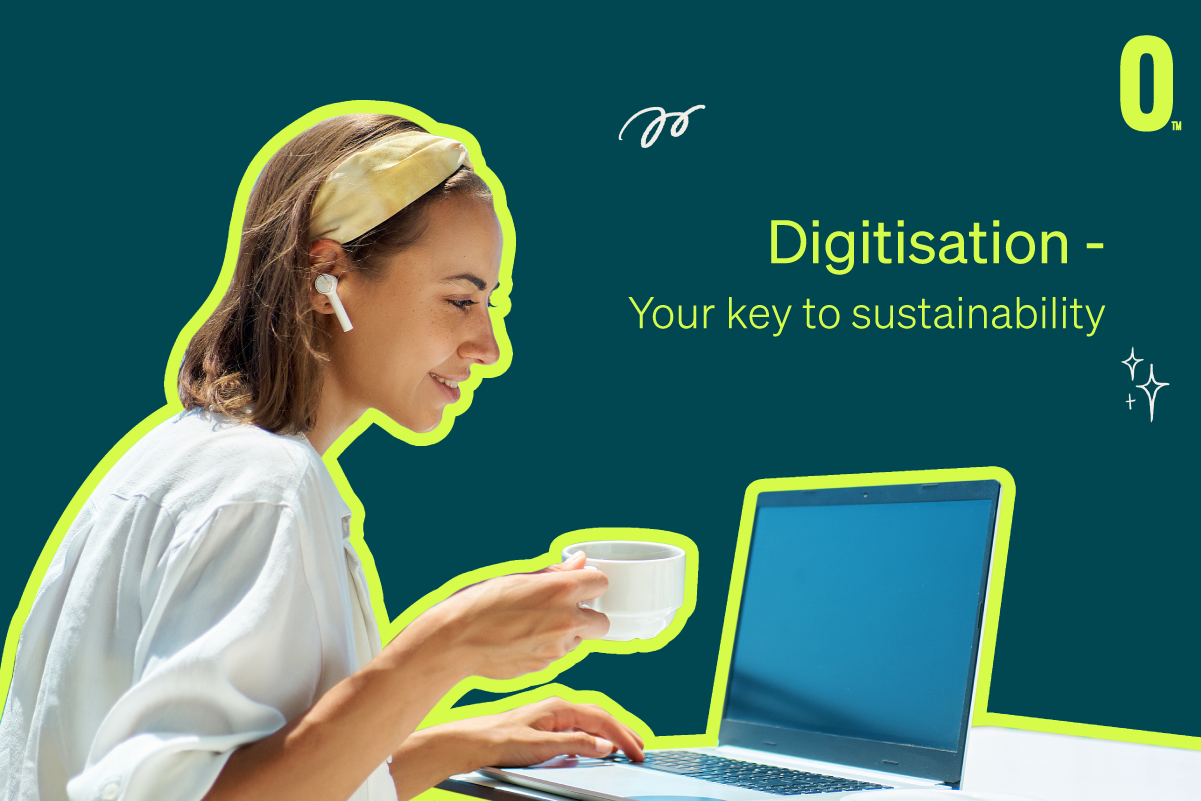The digitisation of various industries has emerged as a powerful force, offering numerous opportunities to address environmental challenges and promote sustainable development. By harnessing the potential of digital technologies, businesses and societies can make significant strides towards achieving environmental, economic, and social sustainability goals.
Enhanced resource efficiency
Digitisation plays a crucial role in optimising resource utilisation, which is fundamental to sustainability. By leveraging advanced data analytics, artificial intelligence, and Internet of Things (IoT) devices, companies can gather real-time data on energy consumption, water usage, and waste generation.
Armed with this information, organisations can identify inefficiencies, streamline operations, and make data-driven decisions to minimise resource wastage. This, in turn, reduces environmental impact, conserves valuable resources, and lowers carbon emissions.
Digital communication and collaboration
One of the most significant benefits of digitisation is its ability to facilitate remote communication and collaboration. Through video conferences, cloud-based document sharing, and virtual project management tools, individuals and teams can connect and work together irrespective of their physical locations.
This eliminates the need for extensive travel, thereby reducing carbon emissions from transportation. Moreover, digital collaboration platforms foster knowledge sharing, enabling experts from around the world to collaborate on sustainability initiatives, exchange best practices, and collectively drive innovation.
Smart cities and infrastructure
Digitisation is transforming traditional cities into smart cities, where interconnected technologies create more sustainable and liveable environments. Smart grids enable optimised energy distribution, reducing energy wastage and reliance on fossil fuels. Intelligent transportation systems optimise traffic flow, reducing congestion and emissions. Smart buildings equipped with sensors and automation systems enhance energy efficiency and occupant comfort.
By integrating digital solutions into urban planning and infrastructure development, cities can become more sustainable, resilient, and responsive to the needs of their residents.
E-commerce and digital services
The rise of e-commerce and digital services has disrupted traditional business models and holds significant potential for sustainability. Online shopping reduces the need for physical stores and their associated energy consumption. Digital services, such as e-books and streaming platforms, reduce paper usage and the carbon footprint of entertainment and information consumption.
Additionally, digital platforms enable the sharing economy, allowing individuals to share resources like cars, accommodation, and equipment, promoting a more efficient use of assets and reducing overall consumption.
Behavioural change and awareness
Digitisation empowers individuals and communities by providing easy access to information, educational resources, and tools for monitoring personal environmental impact. Mobile applications and online platforms offer guidance on sustainable lifestyle choices, from energy-saving tips to eco-friendly product recommendations.
Social media networks facilitate the spread of awareness and inspire collective action on sustainability issues.
By promoting environmental consciousness and empowering behavioural change, digitisation can create a ripple effect, driving sustainable practices at scale.
Digitisation is an indispensable tool in the quest for sustainability. Through resource optimisation, remote collaboration, smart infrastructure, e-commerce, and behavioural change, digitisation contributes to reduced environmental impact, enhanced resource efficiency, and the achievement of sustainable development goals. As we embrace the digital revolution, it is crucial for businesses, governments, and individuals to leverage technology responsibly, harness its potential for positive change, and ensure that digitisation remains firmly aligned with the principles of sustainability. By embracing a digital and sustainable future, we can build a better world for current and future generations – as well as a better business!
We’ll drive your sustainable digitisation journey
Every industry can benefit from strategic tech investment to drive digitisation, but there is a mountain of products, services, and providers out there to sift through. At Otto, we’ll help you put tech into action, helping design and lead your project, get stakeholder and employee support, and align best-case solutions with your goals.



